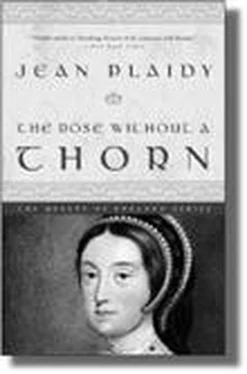Jean Plaidy - Mary, Queen of France - The Story of the Youngest Sister of Henry VIII
Здесь есть возможность читать онлайн «Jean Plaidy - Mary, Queen of France - The Story of the Youngest Sister of Henry VIII» весь текст электронной книги совершенно бесплатно (целиком полную версию без сокращений). В некоторых случаях можно слушать аудио, скачать через торрент в формате fb2 и присутствует краткое содержание. Жанр: Старинная литература, на русском языке. Описание произведения, (предисловие) а так же отзывы посетителей доступны на портале библиотеки ЛибКат.
- Название:Mary, Queen of France: The Story of the Youngest Sister of Henry VIII
- Автор:
- Жанр:
- Год:неизвестен
- ISBN:нет данных
- Рейтинг книги:4 / 5. Голосов: 1
-
Избранное:Добавить в избранное
- Отзывы:
-
Ваша оценка:
- 80
- 1
- 2
- 3
- 4
- 5
Mary, Queen of France: The Story of the Youngest Sister of Henry VIII: краткое содержание, описание и аннотация
Предлагаем к чтению аннотацию, описание, краткое содержание или предисловие (зависит от того, что написал сам автор книги «Mary, Queen of France: The Story of the Youngest Sister of Henry VIII»). Если вы не нашли необходимую информацию о книге — напишите в комментариях, мы постараемся отыскать её.
Mary, Queen of France: The Story of the Youngest Sister of Henry VIII — читать онлайн бесплатно полную книгу (весь текст) целиком
Ниже представлен текст книги, разбитый по страницам. Система сохранения места последней прочитанной страницы, позволяет с удобством читать онлайн бесплатно книгу «Mary, Queen of France: The Story of the Youngest Sister of Henry VIII», без необходимости каждый раз заново искать на чём Вы остановились. Поставьте закладку, и сможете в любой момент перейти на страницу, на которой закончили чтение.
Интервал:
Закладка:
Yet when she considered her growing family, when she thought of Charles, she knew that they were all safer at Westhorpe. She had her own secret to keep too; she wanted none of them to know that she suffered often from mysterious pains; that she was often breathless; she had warned her maids that they were not to mention that her kerchiefs were sometimes stained with blood.
One day Charles came to her in some dismay.
“A summons?” she asked fearfully.
He nodded gravely. “The Papal Legate Campeggio is in London and I am summoned to the Court.”
“So it has gone as far as that. My poor Katharine!”
Charles took her hands and was alarmed because they were trembling.
“Your brother has determined to be rid of her,” he said.
“I know. And marry that sly wench. Marry her, Charles. How can he so demean himself … his throne … his name … by marrying one so far beneath him!”
Charles laughed and gently touched her cheek. “These Tudors have a way of forgetting what they owe their rank when they take a fancy to some low man or woman.”
“We were quite different.”
“Oh no, my love. And it seems that Henry is as determined to have this girl as you were to marry me.”
“Then … God help Katharine!” cried Mary. She clung to Charles. “Charles, have a care.”
“You may trust me.”
“Remember how precious you are to us all.”
“I will never forget, my love,” he answered.
So Charles went to London.
She was restless; she could not sleep; and when she did she would awake startled, her body bathed in cold sweat.
She had grown thinner and paler, more thoughtful, nervous, ready to be startled by a sudden sound.
One morning she awoke in great distress. If Henry could declare his marriage to Katharine invalid, because of Katharine’s previous marriage with his brother Arthur, what of Charles’s marriage to Lady Mortymer? She was still living. What if she herself were to die and her children be declared illegitimate?
She could not rest. There must be a dispensation from the Pope. She must make sure that her children were safe, when she was no longer there to protect them.
The case of the King versus the Queen of England dragged on, but Mary had no difficulty in receiving a confirmation of her marriage to Charles Brandon from the Papal Court.
When she knew that she had succeeded, Mary wept with happiness; and suddenly remembered that for the first time in her life she had thought of herself … dead.
That moment seemed significant, for in it she knew that each day she could spend with her children and husband would be even more precious, that she must live each one as though it might be the last.
She was her gay self and refused to be alarmed even when the people of Suffolk rose against the Duke. Henry, who was in need of money, had levied taxes which he commanded Charles to collect on his behalf, at which the people had risen and threatened Charles’s life. But Mary knew that Charles would know how to handle the people. And she was right; by good fortune and gentle persuasion he quelled the rising; in this he was helped by their immediate neighbors who had benefited from their residence at Westhorpe and the other Suffolk manors and were ready to defend them against those who did not know them so well. Mary had once more been obliged to lay the facts before her brother and plead for clemency; and at her request Henry decided he would not demand the tax and would pardon those who had risen against her husband, who was acting as his representative.
That danger had passed and Mary was determined that the troubles which had been set in motion by the King’s desire to rid himself of Katharine should not come to Westhorpe.
But it was impossible to hold them back. As well try to hold back the sea … or death.
Death? She thought of it now and then. Sometimes she fancied it was like a gray shadow at her elbow; and her great desire was that none should recognize it but herself.
She would not go to Court, and Henry did not insist. He did not need his sister to amuse him now. He had one far more amusing, far more beautiful, one whom he was determined to make his Queen.
“I’ll not go to Court,” declared Mary, “and take second place to my maid of honor. I can see her now, sitting on her little stool, staring into the future with those great brooding witch’s eyes.”
But it was not Anne Boleyn who kept her from the Court, so much as her own failing strength.
She would not be able to keep her secret much longer.
Only yesterday Frances had said to her: “Mother, are you ill?”
That was when they were in the garden and she had felt faint.
She had roused herself. “Nay, my love. I was falling asleep.”
It was easy to deceive a child; not so easy to fool Charles. There were times when she saw his brow furrowed as though with fear.
“My love,” said Charles, “a summons.”
“To Court?”
“Henry is taking Anne to Calais. He wants the approval of François for his marriage.”
“And he asks us to go?”
“He feels it is necessary to have us with him.”
She closed her eyes. How could she endure the crossing, the masques, the banquets? She felt dizzy at the thought.
“I shall not go,” she said.
Charles took her by the shoulders. “You do not deceive me, my dearest,” he said. “You are ill.”
“I am well enough, Charles. It is merely that I grow old.”
“Think how much older I am!”
“But you are as a god, Charles. You are immortal.”
“Do not suggest that I should go on living without you.”
She threw herself against him that he might not see the tears in her eyes.
“I’ll not go to Court, Charles. I’ll not take second place to Henry’s concubine. Why, if I went I should show my hatred of her. They say he grants her every wish. You must not make an enemy of her.”
“Mary,” he said, “I shall make your excuses to Henry. And while I am gone you must be the invalid. You must see the physicians.”
She nodded. She knew she could not much longer go on playing her game of make-believe.
The hot June sun shone on the rose garden of Westhorpe, and as Mary sat by the pond watching the fishes, she could hear the shouts of the children at play.
What happiness I have known, she thought, here in this house … in this garden. The children are growing up now. They will not need me as they did. And Charles? Where was he now? On the way to Calais? Was he paying homage to the Concubine? Oh, Charles, be careful.
He would be careful for her sake … as she would be for his. He had learned to love as she loved; and this garden, this house, was encircled by their love.
God keep them all, she prayed. And if in mourning me they should be sad, then teach them not to mourn.
She closed her eyes and when the children came running into the garden they thought she was asleep.
Charles came into the room as she lay in her bed.
“Charles,” she whispered.
He was kneeling by the bed. “My beloved.”
“So you came back … ?”
“As soon as I heard that you needed me.”
“I needed you, did I not? Oh, how I needed you!”
“Mary. …”
“Oh, Charles, you are weeping.”
“Stay, Mary. Do not leave me. We cannot be apart … you and I. You always said it.”
“This had to come, Charles. Take care of my little ones.”
“You cannot leave us.”
She shook her head and smiled at him.
“Charles, do you remember the chapel at Clugny?”
“For as long as I live I shall remember.”
“Do you remember how I told you that there would be no regretting … as long as we two should live?”
“I remember.”
“Charles, kiss me … for the last time, kiss me.”
Читать дальшеИнтервал:
Закладка:
Похожие книги на «Mary, Queen of France: The Story of the Youngest Sister of Henry VIII»
Представляем Вашему вниманию похожие книги на «Mary, Queen of France: The Story of the Youngest Sister of Henry VIII» списком для выбора. Мы отобрали схожую по названию и смыслу литературу в надежде предоставить читателям больше вариантов отыскать новые, интересные, ещё непрочитанные произведения.
Обсуждение, отзывы о книге «Mary, Queen of France: The Story of the Youngest Sister of Henry VIII» и просто собственные мнения читателей. Оставьте ваши комментарии, напишите, что Вы думаете о произведении, его смысле или главных героях. Укажите что конкретно понравилось, а что нет, и почему Вы так считаете.












